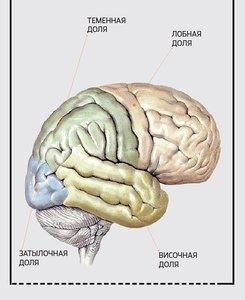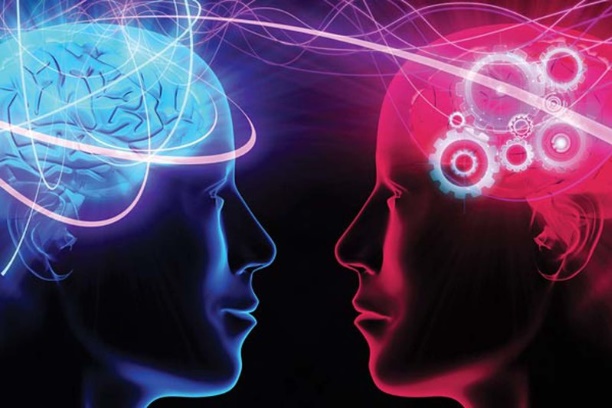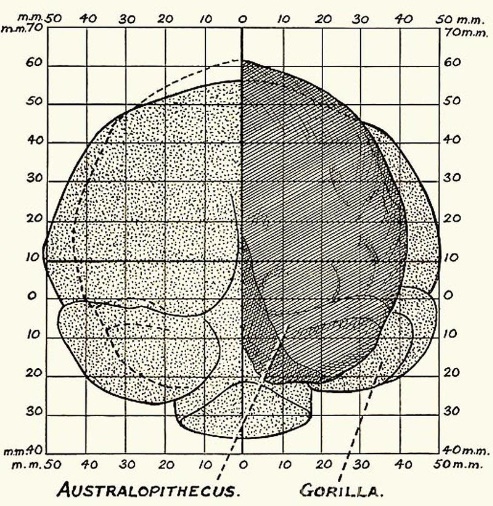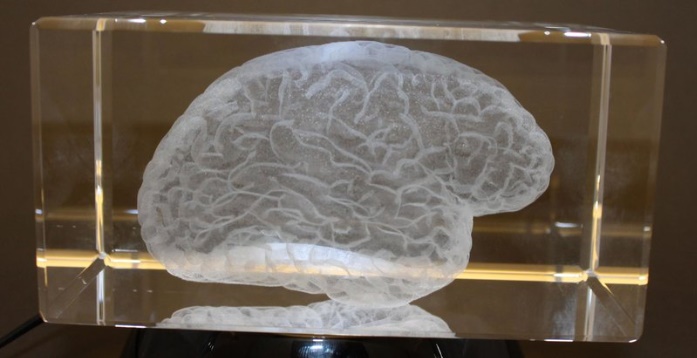Scalpel and Stake
To answer these questions, we will have to turn to interesting metamorphoses that took place with the most ancient ancestors of mankind millions of years ago. Before the advent of man, evolution took place in the traditional way. The “fuel” of evolution is polymorphism, variability, variability within one species. If the external conditions of habitation did not change, the characteristics of the species remained more or less conservative, if the conditions underwent changes, then polymorphism allowed those creatures to survive, which turned out to be more suitable for the changed conditions. But when the variability of traits did not cover the changed conditions, the population died out. Natural selection is the eternal opposition of a plurality of features and environmental pressure. The animals managed to find food for themselves, well, if they failed, they became extinct. There is an opportunity to reproduce – well, no – again, everyone is extinct.

The frontal lobe, which became the morphological basis of human intelligence, originally had the task of inhibiting animal instincts.
Only thanks to any share a person is able to refuse food, sharing it with a neighbor and thereby maintaining relationships within society. And there is one simple proof of this.
Everyone knows that some ladies, too much concerned about losing weight, try to eat as little as possible, and when they reach a weight of about 40 kg, they often develop a disease called anorexia. It is almost impossible to force people with anorexia to eat, and modern medicine is powerless to help these unfortunate people. As a result, these women die prematurely. But 60 years ago, when medicine was not so humane, patients with anorexia were injected with a sharp scalpel in the lower part of the temporal region and cut off the frontal lobe. After a while, the patients regained their appetite and menstrual cycle, and they returned to normal life. Or almost normal. That part of the brain, which, contrary to animal instincts, gave us the opportunity to refuse food, stopped working and the thought of rejection of human food no longer visited.
The frontal lobe maintained social connections in ancient hominids. Those who turned out to be unable to share food were either eaten or expelled. Therefore, in just a few million years, the frontal regions of the brain grew very quickly and once became the basis of the mind.
Man is a natural part of nature, and for a long time the evolution of the human brain followed the same biological laws. It didn’t go very fast, and the very appearance of primates (about 65 million years ago) cannot be considered some kind of a pinnacle of evolution — it’s nothing more than the adaptation of mammals to life on trees. Real human history in the monkey world began at the moment when unusual conditions arose, that is, the very transitional environment that radically changed the nature of the evolution of the human brain. It is clear that, for no reason at all, such serious changes, which ultimately led to the emergence of homo sapiens, could not have happened. To explain the reason for these revolutionary transformations, the mass of theorists are inclined to different forms of the so-called speech-social-labor theory. Say, the person began to communicate, began to work, and then the brain began to radically change. However, this theory does not withstand even superficial criticism. Many species of animals are now known to use tools, sophisticated communication systems, and advanced community structures, but this never led to the emergence of a large brain. So what happened?

Paradise was in Africa
Apparently, the archetype of the human brain was formed in a certain unique environment as a result of a long biological process. At some point in time, about 15 million years ago, very favorable conditions for the life of any mammals developed in the east of Africa. Then in the subtropics or in the tropics, in semi-flooded places, in shallow flowing water bodies, some tasty and nutritious animals – invertebrates or fish – multiplied in huge quantities. These creatures were parasitized by a huge number of birds and other animals. Among the latter were our distant ancestors – then they were slightly smaller than modern chimpanzees. And today in Norway you can see how, during the spawning of herring, bears walk on their hind legs and, standing there up to their chest, scoop up caviar with their paws and eat it until they are full. So our ancestors only had to enter the water and draw lightly with their paws in order to gorge themselves. Such a semi-aquatic lifestyle, by the way, explains well the origin of bipedalism. It is clear that the further an animal can enter the water, the more it will be able to collect food there. But going into the depths on all fours is inconvenient, so both Norwegian bears and many modern primates enter the water standing on two legs. At the same time, movement on two legs freed the front limbs, which also came in handy. Since, as already mentioned, aquatic animals became abundant food for birds, the latter actively reproduced, which means they laid eggs. Human ancestors needed hands to retrieve eggs from their nests and eat them.
If fruits are readily available for climbing animals, then obtaining protein food is given to primates with great difficulty. In pursuit of meat, modern monkeys even hunt other monkeys. But in the “African paradise” that developed 15 million years ago, the primates of that time had no problems with high-quality protein food: caviar and bird eggs were almost at arm’s length. All this led to the formation of a group of animals that practically dropped out of the selection system: why change if the environmental conditions are close to paradise? However, as you know, with an excess of food, animals are not interested in anything at all, except for reproduction. The abundance of food, therefore, increased competition during reproduction and, as a result, became the reason for the race for dominance.
A spoken thought is a lie
One of the consequences of the current situation was speech, which, apparently, originated just in the “paradise” period. Speech could have arisen as a way of organizing joint actions, and perhaps began with simple sounds or, for example, singing, like among modern gibbons. By the way, gibbons in the brain have the same fields as in the human brain, and it is there that our speech is localized. Further, on this basis, speech has already arisen, used not as a means of communication, but as a means of imitation. It was possible to impress the female with real success in hunting and abundant prey, which added attractiveness to the male, increasing the chances of passing on his genome to future generations. And you could just tell her about it and get the same laurels of the winner in her eyes, without making any real efforts. In the biological world, everything is maintained in exactly this proportion: the fewer actions and the greater the biological result, the more effective the event. Therefore, imitation of action with the help of speech has become an invaluable quality among archaic anthropoids. Speech became a profitable product, and intense selection began to act on it, as it allowed to achieve a reproductive result. In fact, speech originated as a form of deception, and deception was effective then and now.

So, while food was more than enough in heavenly conditions, natural selection practically did not work, except that sexual selection, about which Darwin spoke, worked. Everything changed when the spawning grounds of aquatic animals that formed this transitional environment changed. And about 5 million years ago, the poor anthropoids were left with nothing. The food has disappeared. What did our ancestors have in the asset? Teeth that have already become almost human? You can’t even bite off anything with these teeth. They were hyperspecialized for high-quality and easily chewed protein foods. There are other explanations for the emergence of human teeth – some anthropologists believe that they were transformed when the anthropoids climbed down from the trees and went into the half-bush in order to pull them out of the ground and eat the roots. But not only are there no traces of their alleged use for grinding the roots on the teeth of a person – it is also not clear why it was necessary to get off the trees and abandon the fruits in favor of root crops.
“Freebie” like a drug

Contrary to popular beliefs, intelligence by itself in modern society does not provide any special advantages. Any mental activity only brings results when it has a biological “substrate”, three main stimuli – food, reproduction, dominance. Without stimuli, the brain works hard. The brain is a volatile system, and it is wired to do nothing. After all, even while a person is relaxed, the brain, which is 1/50 of the body weight, consumes 9% of the body’s energy. As soon as we think about it, the energy consumption rises to 25% of the energy. A quarter of everything we breathed, ate and drank. Therefore, the brain encourages idleness and receiving benefits without mental expenditure. Suddenly piled up money, dinner at a restaurant at someone else’s expense, a nice gift – all this fills us with bright joy. It was the brain that saturated the blood with serotonin, the “hormone of happiness,” only one amino group differing in chemical composition from LSD. But if we decided to make money with honest intellectual labor and strained the brain, it shows discontent and begins to produce completely different substances. They cause irritation in us, premature fatigue, a desire to urgently drink, eat, and go to the toilet. Brain laziness can be the cause of a real bowel disorder. The brain seems to be telling us: quit your job and start looking for free benefits.
What are the teeth – the human ancestors who came out of the “paradise” had neither claws, nor quick dexterous legs, nor hair, which disappeared, apparently, due to the semi-aquatic habitat. With such a sad legacy, most of the anthropoids, of course, died out, but the rest began to use their only resource, which was not affected by selection, – the brain. It was then that the biological evolution of man began.
What a smart guy you are!
And she took a very interesting path. When different groups of Australopithecines began to search for food, biological selection began to act on them for the first time. And then they began to unite in large groups and lose those biological qualities that allow individual animals to survive. Selection now favored only those who could exist in the group. It was they who survived, multiplied and carried the genome into the next generations. And who could not – from such a group was eliminated. We can see this even now in the examples of human communities, which for the sake of maintaining an average level of relations discard both “roots” and “tops”, that is, they get rid of both sociopaths and the most capable and talented. In the communities of Australopithecus, this process was in full swing, and the forced elimination of the most violent and the smartest led to migrations from the ancestral home of humanity – Africa.
If we decompose the history of human migration from Africa into stages, we get the following picture: asocial and most intelligent individuals migrated, created a new sedentary group, and in this sedentary group, the brain turned out to be on average larger than that of the members of the original group. Then the new group became more socially stable, and everyone who destroyed stability was again “kicked out”, they migrated again and formed a new group due to high polymorphism. And with each next migration, the brain grew slightly. At first, groups of “outcasts” traveled across Africa. Representatives of homo erectus have already settled in Eurasia. All this time, the brain continued to grow. If we look at anthropogenesis in that part of it, where it is well represented paleontologically and archaeologically, it turns out that throughout the evolution of each species of hominid, the brain has been continuously increasing. In particular, in homo erectus, it initially weighed about 900 g, but gradually grew to 1200 g.

Altruistic Intelligence
It turns out that in a stable social group of any early and late hominids there was an immutable law of artificial selection. And this is the essence of the evolution of the human brain.
No evolution or natural selection would have been enough for our brain to make its way from the brain of chimpanzees to the brain of homo sapiens in just 4.5 million years. But if there is a selection on a social basis, evolution is incredibly accelerated. Thanks to the most severe internal artificial selection.
Here’s the question: what is difficult to take away even from your beloved dog? Of course, delicious food – a piece of sausage or bone. In the animal kingdom, it is not customary to share food – on the contrary, animals try to take food away from each other in any way. Stole – it means, ate, ate – it means, got an advantage in reproduction. In human society, it is customary to share food. And so, as it turned out, we needed the lower part of the frontal region of the human brain in order for us to refuse food. In other words, the frontal region, considered the morphological basis of intelligence, has historically evolved not to think high or play chess. In those distant times, there was no “high”, no chess. The main task of this part of the brain was to inhibit animal instincts. For only by sharing food, it was possible to maintain interaction and communication in the group.
Fruit of the Pyrrhic Victory
Mankind has settled on the planet, increasing the brain volume, and finally two large groups appeared on the historical stage – Neanderthals and Cro-Magnons. In representatives of both groups, the brain reached a huge size – 1560-1600.However, despite the fact that the brain was the same in mass, the strategy of behavior and the results of selection turned out to be different. Neanderthals were powerful, strong, intelligent creatures who settled in very small families. They invented tools and, in general, were probably more intelligent than homo sapiens sapiens. But the selection associated with maintaining conflict-free situations in groups did not work on them. And Cro-Magnons, it seems, were dull, limited, but their brains went a longer way of socialization. Cruel selection has adapted them to the social way of life. What was the result of the competition? When three beetles are attacked by a gang of ants, it destroys them. The Cro-Magnons dealt with the Neanderthals in much the same way. And then we Sapiens reaped the sad fruits of our victory. 30,000 years ago, social selection, which then, in a competitive environment, required colossal efforts on the part of the Sapiens, ceased. And the situation returned, in a sense, to the beginning of the path: the selection of people for social adaptation accelerated, only now some too smart “outcasts” could not influence the situation – society became too big. And non-initiative individuals with mediocre data, capable of fruitful communication and collective action, received an advantage. Whoever could follow the rules of the game in the group, no matter how idiotic they were, had the opportunity to reproduce and transfer the genome to the next generation. Whoever broke the rules did not breed. So the brain gradually decreased from 1600 to 1300 g, and I must say that such a regression has not been observed in any species in the entire history of hominids.
Does the brain have a chance of biological progress? Most likely not, at least until the effect of biological selection is replaced by artificial social selection. The most socially adapted people receive preferences, and the presence of a small brain in most cases does not bother them.
Author – Doctor of Biological Sciences, Professor, Head of the Department of Embryology, Research Institute of Human Morphology, Russian Academy of Medical Sciences
Link to source
